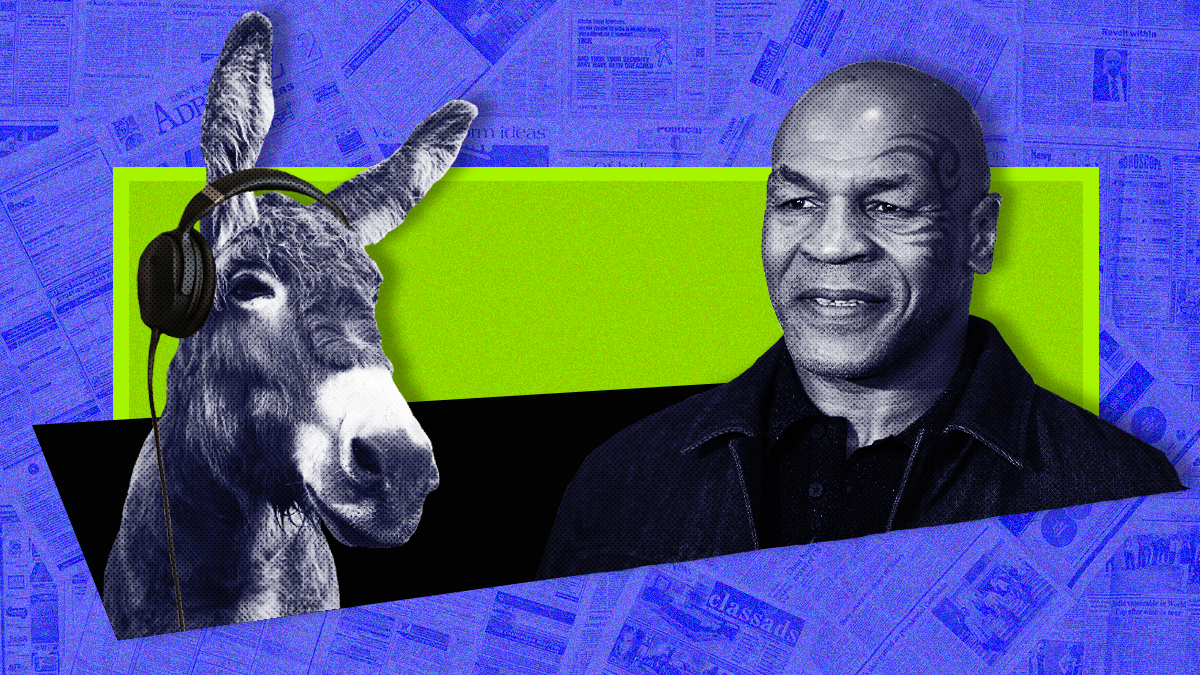There are times in life when it is important to listen to Mike Tyson. For the Democrats, right now is one of those times.
As some of you may know, the fearsome former heavyweight champ is about to fight Jake Paul, a 27-year-old boxing-curious YouTube star 30 years his junior. It will be Iron Mike’s first real fight in almost 20 years.
For anyone who remembers watching Tyson in the ring – or even challenging him on “Mike Tyson’s Punch-Out!” as a child – it seems obvious that Iron Mike, even at 57, is going to kill Glass Jake, isn’t it?
But I’m not a boxing analyst, I’m a political analyst, and so what sticks with me is the way Tyson, in a recently released Netflix documentary entitled “Countdown Paul vs. Tyson,” explains the difference between himself and Paul.
“He’s a manufactured killer,” Tyson says, watching as Paul claims to be the new face of boxing. “Television and papers made him a killer. I’m a natural-born killer.”
Manufactured killers versus natural-born killers. This distinction is on my mind these days as I’m reading the post-mortems on Kamala Harris’ election loss to Donald Trump. In particular, the ones that focus on how Trump’s deft engagement with non-traditional media – in particular, podcasts popular with young men – helped him win.
The Democrats, some are saying, need to “build their own Joe Rogan.” The reference, of course, is to “The Joe Rogan Experience,” the most listened-to podcast in America. Rogan, a former UFC fight commentator and one-time Bernie-bro, has become a celebrated voice in MAGAland, and a hugely influential figure among the millions of young men (of all races) who flocked to Trump at the polls.
Trump spent three hours with Rogan and his 11 million regular listeners, while Harris refused, reportedly because she was worried about backlash from some of her progressive staffers. This has become a microcosm of the ways Democrats failed to get out of the mainstream media bubble to engage with voters who were either undecided or disillusioned.
The problem for the Democrats isn’t that they don’t have a media ecosystem of their own. They do – it’s just that it’s mostly the mass media, precisely the kinds of outlets that are suffering a slow-motion knockout as Americans’ trust in legacy media plummets.
The data on that score are stark: Only about a third of Americans trust mass media now. The partisan splits on it are glaring. Some 54% of Democrats still trust the mainstream, but only half as many independents agree. Among Republicans, the mark is just 12%.
Podcasters and streamers have leaped into this vacuum of trust. Over the past 15 years, the share of Americans who regularly listen to pods has quintupled to nearly 50%. That doesn’t even capture the millions of hours people spend getting news and views from streamers on YouTube, Rumble, and other video platforms.
Conservative activists and campaigns have exploited this space particularly well, with 1%-funders like the Kochs, the Wilkses, or Peter Thiel pouring huge amounts of money into finding and elevating young influencers who have audiences – and credibility – of their own.
Countering that from the left, if the Democrats want to, won’t be easy. As some have pointed out, many young, left-wing influencers are at a disadvantage. The right-wing influencer set is funded by a whole constellation of conservative billionaires, but left-of-center activists with a more overtly “soak the rich” message might find it harder to get similar funding from Democrat-aligned one-percenters.
Democrats certainly need a better media strategy. But the biggest mistake they could make would be to believe it’s possible to “build” a Joe Rogan or even a series of Joe Rogans. You can’t build that any more than you can grow a Mike Tyson in a laboratory.
To get out of the wilderness, the Democrats need to get out of their bubble. They need to go find – and support – some natural-born killers of their own. Trying to simply manufacture them, in a deeply anti-establishment era, would only lead to more knockouts at the ballot box.
